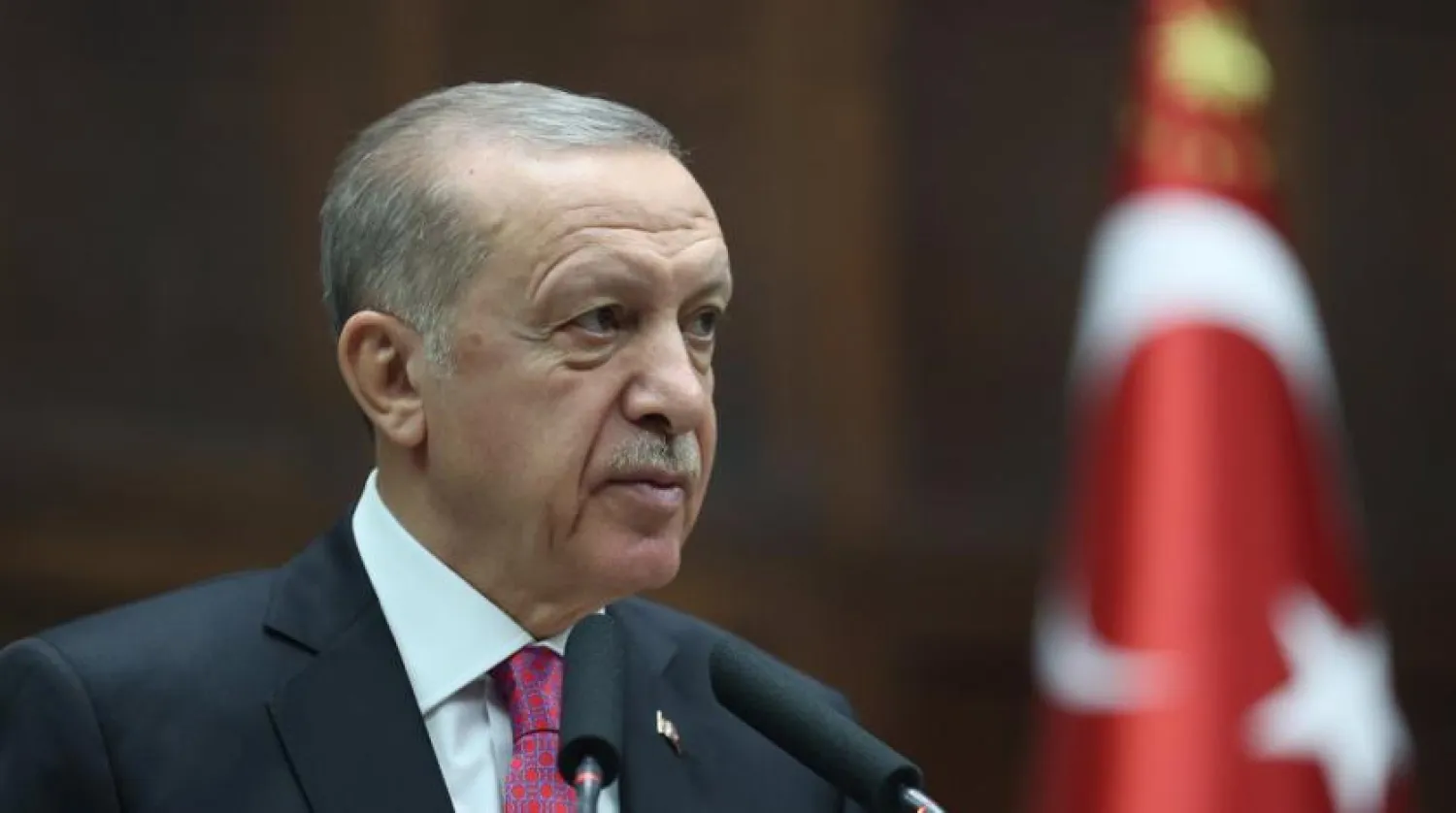Turkish President Recep Tayyip Erdogan said another meeting on Sweden's NATO membership bid would be held later this month after hosting Swedish Prime Minister Ulf Kristersson in Ankara on Tuesday.
Kristersson was hoping to persuade Türkiye to drop its opposition to Sweden joining the US-led military alliance, with Ankara accusing Stockholm and Finland of harboring outlawed Kurdish militants.
After Russia invaded Ukraine in February, the Nordic neighbors abandoned their long-held policy of non-alignment and applied to join NATO, said AFP.
Erdogan -- who is seeking re-election next year -- is in a position of strength, having persuaded Russian counterpart Vladimir Putin to stop blockading Ukraine's grain exports.
After meeting Kristersson at the presidential palace in the Turkish capital, Erdogan said a joint meeting would be organized in Stockholm later this month, without specifying the date.
The Turkish leader said he "sincerely wished" for Stockholm to join NATO, but added: "We understand their security concerns, and we want Sweden to respond to ours."
Kristersson described his meeting with Erdogan as "very productive".
"Sweden will live up to all the obligations made to Türkiye in countering the terrorist threat," he said.
The Swedish parliament on Tuesday said it would vote next week on a constitutional amendment that would make it possible to strengthen anti-terror laws, a key demand from Türkiye.
The amendment will make it possible to introduce new laws to "limit freedom of association of groups involved in terrorism", the parliament said in a statement, adding that the vote was scheduled for November 16.
- 'Cautious optimism' -
NATO Secretary General Jens Stoltenberg visited Ankara last week to press the case for Sweden and Finland, saying their accession would "send a clear message to Russia".
Stoltenberg stressed the two had agreed on concessions to Türkiye in June, which included addressing its request for "terror suspects" to be deported or extradited.
Writing in Swedish newspaper Aftonbladet on Monday, Erdogan's advisor Fahrettin Altun voiced "cautious optimism" that the new right-wing government in Stockholm would take "concrete measures" to meet Ankara's concerns.
Türkiye accuses Sweden in particularly of leniency towards the militant Kurdistan Workers' Party (PKK) and its Syrian offshoot, the People's Protection Units (YPG).
Ankara says it provided Sweden and Finland in June with a list of people it wanted extradited.
Since then, Sweden has authorized one extradition for fraud. Both Stockholm and Helsinki say that extradition decisions are made by the courts.
The PKK is blacklisted by Ankara and most of its Western allies. But the YPG has been a key player in the US-led military alliance combatting the Islamic State group in Syria.
While Sweden has in the past voiced support for the YPG and its political wing, Kristersson's government appears to be distancing itself.
- Cashing the NATO enlargement card -
Swedish Foreign Minister Tobias Billstrom told AFP in October he was convinced Sweden could satisfy Türkiye's demands.
Finnish President Sauli Niinisto told journalists on Monday he expected joining NATO would "happen in reasonable time".
Some analysts nevertheless believe Türkiye's presidential and parliamentary elections in June 2023 could delay the Nordic bids.
"The Turkish side will ratify their membership when it feels it is the best moment to cash that card," said Ilke Toygur, professor of European geopolitics at the University Carlos III in Madrid.
"I sense that many countries in NATO already assume that enlargement will be next year, maybe even in the second half of next year," she told AFP.
"It is widely assumed that Türkiye is also trying to negotiate for other things. It could be the F16s. It could be about its overall relationship with Russia."
Leading US senators have threatened to block the sale to Ankara of US F16 fighter jets unless Türkiye ends a maritime border dispute with Greece.
Türkiye, which seeks to maintain good relations with Ukraine and Russia, has not joined Western sanctions on Moscow and has acquired a Russian missile defense system while also supplying Kyiv with combat drones.
"It remains to be seen if Erdogan thinks he's got enough signs of goodwill from Sweden and it's therefore in his political and military interest to declare victory, or if he thinks sticking to the current line will serve his re-election campaign," said a European diplomatic source.
There was still a "reasonable chance" Türkiye would ratify the NATO bids before the 2023 elections, the source said.









